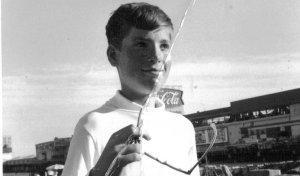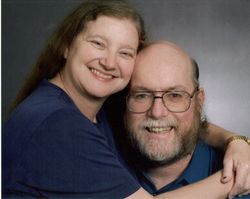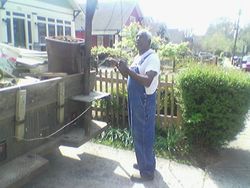Think of this as Volume 15, Number 42 of A-Clue.com, the online newsletter I've written since 1997. Enjoy.

By that I mean I was born a few months before Jobs, also in 1955, and I'm still around while he is no more.
We were both born at the height of the Baby Boom. It peaked that year for boys, and two years later for girls. We've always been acutely aware of what that means. The culture of the boom was made by others, and we have lived feeling some responsibility for it, in a world not of our making.
We are 70s people, not 60s folks. We did some things in our youth, but most of us pulled away in time, and taught our children fearsome tales that have kept them from drawing outside the lines. Many of us – Steve included – have thus spent our lives in rebellions against ourselves, and our contemporaries.

But we're all nicer, in our hearts, than we appear to others. I'm sure even Gathafi thinks he is a good guy. We're all able to fool ourselves into thinking that the image we portray is our real image, not the image of us that others see. And this lets us see ourselves as heroes in our own stories, our failures as our victimization, our choices as inevitable.
The line that is most quoted about Steve's self-eulogy is the one about living every day as though it might be your last, of living every day being conscious of death, and asking yourself, in that moment, if this is what you really want to be doing. If the curtain fell right now is this what you'd like it to fall on.

This is not a blog about religion. I don't want to argue that, or even ethics, with you.
Instead, I just want to argue, from Steve's life, toward mindfulness. Toward simply, being aware of your own life as you live it, making each day as positive an experience for yourself and those around you as you possibly can.

Enjoying what we are, even while striving to be a little bit more, is a mind trick. We all have thousands of crazy voices in our heads, and the trick is to still those voices, to turn the jumble into a chorus, and to have that chorus humming about us while we do what we can to enjoy each day.
For instance. I care about what I write. I care about what I'm writing now. But when I finish this post, I'm going to leave it and move on to something else, which I will care equally about. I no longer obsess over the medium I write in, or my place in that world, or demand that the world see me as a rare genius toiling in anonymity, a Kafka or Van Gogh yet to be discovered by later generations. I don't care about that. I care about what I'm writing now, today, this moment, I care about it deeply. And then I move on.
I now try to do other things in the same spirit. I took my wife out to dinner last night. We've been together over 35 years. I usually work in a t-shirt and jeans. But yesterday I put on a suit, to surprise her, and as I walked to the restaurant I took in the sunny weather, I spoke kindly to people I saw on the train and to the guard at the building where the restaurant is located. I was rewarded later when, upon walking out, the guard recognized me, and asked about how I was, and smiled.
Little things. Life is a collection of little things, individual moments rather than grand themes. The themes are for others to discover. Our job is to live each moment as completely as we can, with as much joy as we can, and transmit that joy to others so they can have their own moments.

Rev. Johnson's life is as much a success as Steve Jobs' was, because the collected moments resonate with those around him, and will live on in their hearts forever. His children and grandchildren will rise up to call him blessed, and I've been blessed to know him.
Can your neighbors say the same of you? If they can't you have work to do. But it's work you can do. Make today better for yourself, try to make it better for others, and then if it turns out to be your last day it will have been a good day, and yours a life worth living.











Thanks, Dana. I’m a Silent, not a last-wave Boomer, and am coming to mindfulness rather late and through another route- and with the same ADD that you and one of my on-line spiritual resources has – and has found the entire concept to be a very good thing to practice.
I have to keep telling monkey-mind (and reptile brain and baboon-brain!) that it’s a practice, not a belief, and to keep plugging.
Thanks again.
Thanks, Dana. I’m a Silent, not a last-wave Boomer, and am coming to mindfulness rather late and through another route- and with the same ADD that you and one of my on-line spiritual resources has – and has found the entire concept to be a very good thing to practice.
I have to keep telling monkey-mind (and reptile brain and baboon-brain!) that it’s a practice, not a belief, and to keep plugging.
Thanks again.